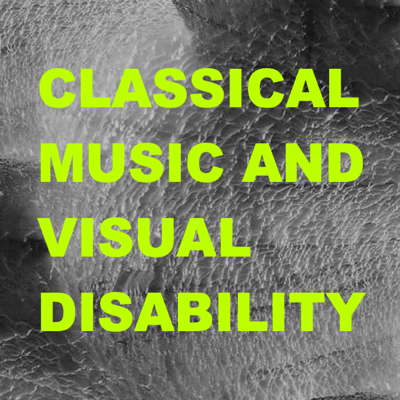 PODCAST: John Dante Prevedini leads a discussion about Classical Music and Visual Disability, including contributions from Charlotte Hardwick, Robert McCarney, Halida Dinova and Giuseppe Pennisi.
PODCAST: John Dante Prevedini leads a discussion about Classical Music and Visual Disability, including contributions from Charlotte Hardwick, Robert McCarney, Halida Dinova and Giuseppe Pennisi.
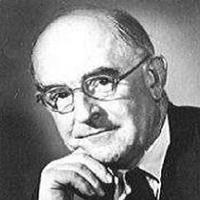 SPONSORED: Ensemble. Unjustly Neglected - In this specially extended feature, Armstrong Gibbs' re-discovered 'Passion according to St Luke' impresses Roderic Dunnett.
SPONSORED: Ensemble. Unjustly Neglected - In this specially extended feature, Armstrong Gibbs' re-discovered 'Passion according to St Luke' impresses Roderic Dunnett.
All sponsored features >>
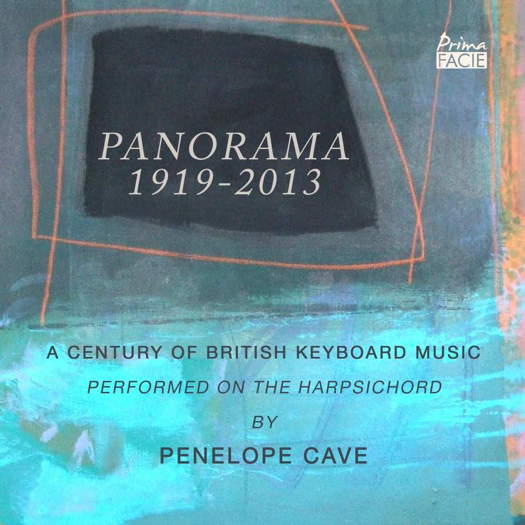 SPONSORED: CD Spotlight. A Fantastic Collection. Penelope Cave Panorama CD. Little-known harpsichord gems, strongly recommended by Alice McVeigh.
SPONSORED: CD Spotlight. A Fantastic Collection. Penelope Cave Panorama CD. Little-known harpsichord gems, strongly recommended by Alice McVeigh.
All sponsored features >>
Unstoppable Panache
MIKE WHEELER listens to Amy Dickson and Martin Cousin
It's the start of a new era for Derby Chamber Music. With some former committee members standing down, the society's patron, cellist Katherine Jenkinson, has become more directly involved in running the show, with colleague Katherine Boyes, including booking players. Along with the change of guard, recitals have moved from Friday evenings to Sunday afternoons, and the effect on audience numbers will be carefully monitored.
There was certainly a reasonable turn-out for saxophonist Amy Dickson and pianist Martin Cousin, a familiar face to DCM audiences – Multi-Faith Centre, Derby University, Derby, UK, 5 February 2023. Their attractively eclectic programme opened with Four Country Dances, one of four sets of arrangements by Richard Rodney Bennett of tunes from Playford's The English Dancing Master, in which Bennett neither plays down his distinctive style nor swamps the originals. Together Dickson and Cousin found wistfulness as well as sprightly energy in the four pieces. They followed them with a graceful account of Ravel's Pavane pour une infante défunte, adapted from Louis Fleury's flute and piano transcription. Dickson then took a breather while Cousin played the first of the afternoon's two Liszt transcriptions – La charité, the second of two transcriptions of sacred pieces by Rossini. He conjured the spirits of both composers, even as Liszt finds himself unable to resist making Rossini's big finish even more grandiose. Dickson returned for the last work in part one, Gate, by Graham Fitkin, in which the two players highlighted the way the piano's rhythmic impetus and bubbling energy offset the saxophone's long lines.
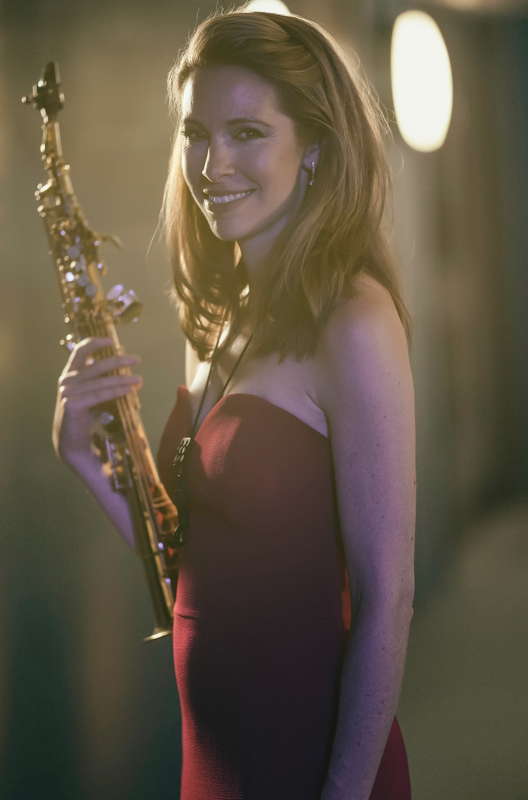
Amy Dickson
After the interval Dickson switched to alto sax for the premiere of Awakening, by Jos Cole, a fourth-year student at the Royal Northern College of Music. As in the Fitkin, well-shaped saxophone lines complemented gently rippling piano figures, and the ending was nicely understated.
It was back to soprano sax for two of Falla's Siete Canciones Populares Españolas, in transcriptions by Jessica Wells. Dickson seemed to bring out the latent Arabic strain in 'Nana', while, in 'Jota', Cousin was alert to the incisive dance-rhythms, though Dickson's command of the original voice-part was not as sassy as I'd been expecting.
Following on from those dance-rhythms, Cousin's second Liszt transcription was his Rondeau fantastique sur un thème espagnol (El Contrabandista), based on an aria from El Poeta Calculista, a one-man opera which composer, tenor and singing-teacher Manuel García wrote for himself to perform. The original aria must be quite a show-stopper, and though it did strike me as over-long, Cousin brought off Liszt's staggering virtuoso work-out with unstoppable panache.
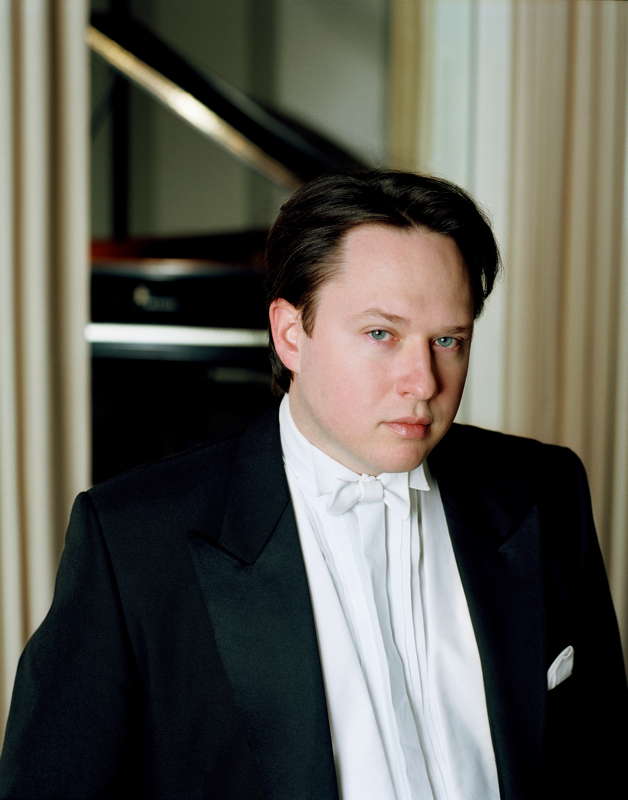
Martin Cousin. Photo © Jochen Braun
The recital ended with Dickson's own transcription of Philip Glass's Violin Sonata. I don't think I'll ever be a paid-up Glass fan – his music courts monotony too assiduously for my liking. But the sonata works well enough in its new guise, and all credit to Dickson for setting herself the challenge of learning circular breathing techniques specially. In the first movement, she and Cousin brought out some textural variety, and shifts of focus between the instruments in the second, while the quiet endings to all three movements were nicely handled.
Copyright © 15 February 2023
Mike Wheeler,
Derby UK



